Types of Trailers in Logistics: A Comprehensive Overview
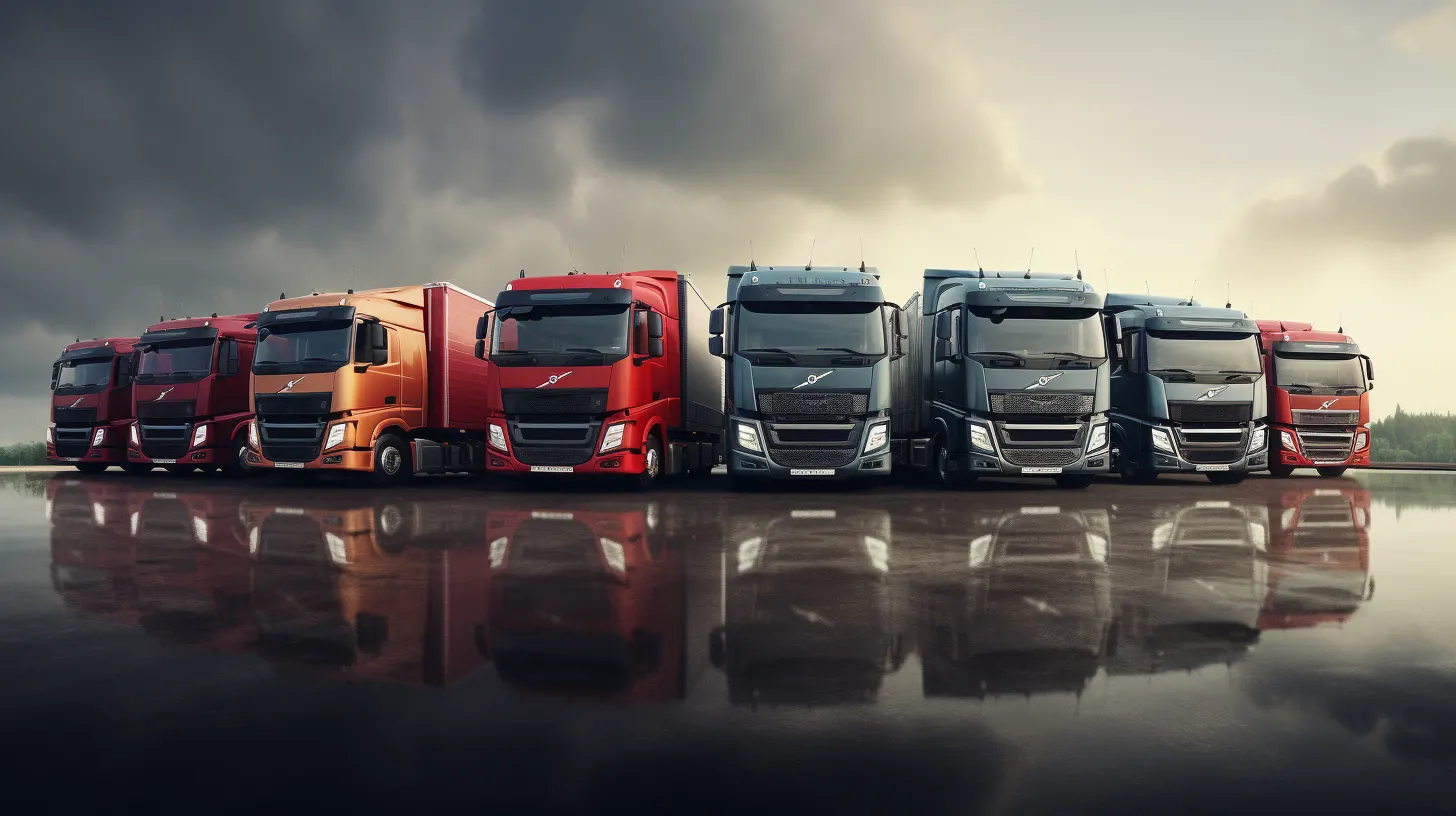
In the world of logistics and transportation, trailers play a vital role in ensuring the smooth movement of goods from one location to another. They serve as the backbone of the supply chain, accommodating various types of cargo and providing essential support for efficient logistics operations. This article aims to provide a comprehensive overview of the different types of trailers used in logistics, highlighting their features, advantages, and common applications.
Dry Van Trailers
Dry van trailers are the most common type of trailers in logistics. They are fully enclosed, providing protection from external elements and theft. Dry van trailers are versatile and can transport a wide range of goods, including packaged goods, electronics, and non-perishable items. Their design enables easy loading and unloading through rear doors, making them suitable for both dock-to-dock and door-to-door delivery.
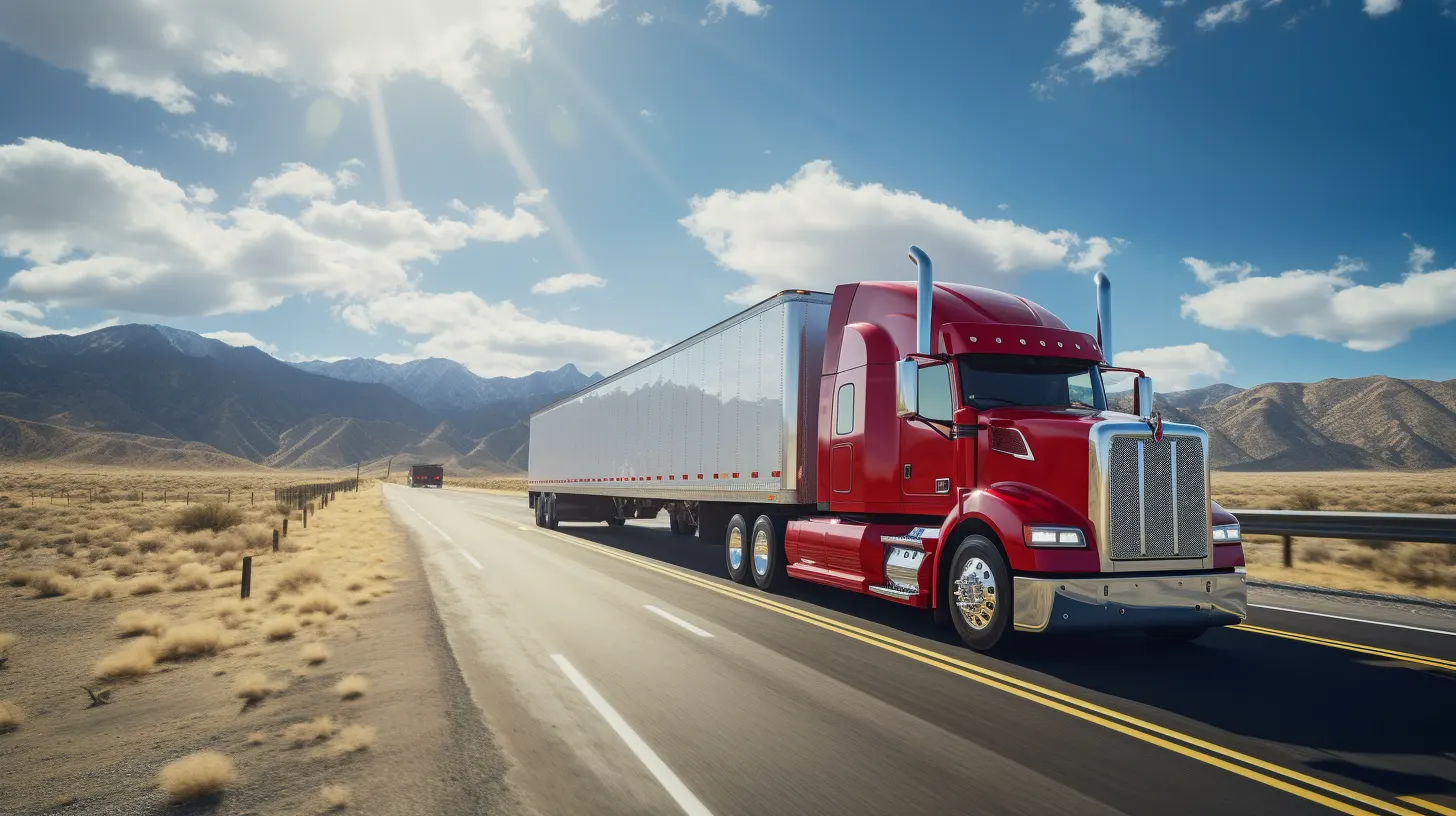
Dry Van Trailers: Advantages and Benefits
Security and Protection
The primary advantage of dry van trailers lies in their ability to provide security and protection for a wide range of cargo. The enclosed structure ensures that goods are shielded from weather-related damage, reducing the risk of spoilage or deterioration. Additionally, the solid walls and rear doors offer enhanced security by preventing unauthorized access and reducing the likelihood of theft.
Versatility
Dry van trailers offer exceptional versatility, as they can transport various types of goods, including packaged items, electronics, consumer goods, furniture, and non-perishable goods. Their flexibility makes them a popular choice for a wide array of industries, ranging from retail and e-commerce to manufacturing and distribution.
Dock-to-Dock and Door-to-Door Delivery
Dry van trailers facilitate both dock-to-dock and door-to-door delivery methods. With rear doors that can be opened wide, these trailers enable seamless loading and unloading at loading docks. This feature ensures efficient transfer of goods from the trailer to the warehouse or vice versa. Moreover, dry van trailers are suitable for door-to-door delivery, allowing for direct shipment to the intended destination.
Enjoy seamless cross-border shipping
Book a free consultation with a Fr8App cross-border Expert and optimize your results today.
Reefer Trailers
Reefer trailers, also known as refrigerated trailers, are specially designed to transport perishable goods that require temperature-controlled environments. These trailers are equipped with cooling systems that maintain specific temperature ranges, ensuring the freshness and quality of products like fruits, vegetables, dairy products, pharmaceuticals, and frozen foods. Reefer trailers are essential in maintaining the cold chain during transportation.
Reefer Trailers: Advantages and Benefits
Temperature Control
The primary advantage of reefer trailers is their ability to maintain specific temperature ranges, ensuring the preservation of perishable goods. This makes them ideal for transporting items such as fruits, vegetables, dairy products, pharmaceuticals, frozen foods, and other temperature-sensitive goods. Reefer trailers enable businesses to adhere to strict temperature requirements, protecting the quality and extending the shelf life of perishable items.
Flexibility
Reefer trailers offer flexibility in terms of temperature settings, allowing operators to accommodate different types of cargo. The temperature can be adjusted to cater to a wide range of perishable goods, providing optimal conditions for each product. This flexibility makes reefer trailers suitable for transporting goods with varying temperature requirements within a single shipment.
Protection from External Factors
Reefer trailers provide protection from external factors that can compromise the integrity of perishable goods. They shield cargo from extreme temperatures, humidity, sunlight, and contaminants, preserving their freshness and quality throughout the journey. Reefer trailers also offer airtight sealing to prevent the entry of external odors, ensuring that the transported goods maintain their distinct flavors and aromas.
Extended Shelf Life
By maintaining optimal temperature and humidity levels, reefer trailers help extend the shelf life of perishable goods. This allows businesses to transport goods over longer distances and reach distant markets while still delivering fresh products to consumers. Reefer trailers contribute to reducing food waste by enabling the efficient distribution of perishable items.
Flatbed Trailers
Flatbed trailers have an open design without sides or roofs, offering versatility for hauling oversized, heavy, or unconventional cargo. They are commonly used for transporting construction materials, machinery, large equipment, and vehicles. Flatbed trailers are beneficial for easy loading and unloading, as they allow access from all sides and can accommodate irregularly shaped loads.
Versatility and Flexibility
The primary advantage of flatbed trailers lies in their versatility. Unlike enclosed trailers, flatbed trailers can transport oversized and irregularly shaped cargo that cannot fit within the confines of traditional trailers. This makes them ideal for hauling items such as construction materials, machinery, large equipment, vehicles, and even pre-built structures. The open design allows for easy loading from the top, sides, or rear, providing flexibility for different loading and unloading scenarios.
Accessibility
Flatbed trailers offer excellent accessibility, enabling loading and unloading from all sides. This feature proves beneficial when dealing with cargo that requires crane or forklift access, or when the cargo itself cannot be easily maneuvered into a closed trailer. Additionally, the absence of obstructions allows for the transportation of longer items that extend beyond the trailer’s dimensions, such as long pipes or beams.
Time and Cost Efficiency
Flatbed trailers offer time and cost efficiency in logistics operations. The ease of loading and unloading reduces the time required for handling cargo, enhancing productivity. Furthermore, flatbed trailers eliminate the need for packaging or disassembling oversized cargo, saving time and reducing labor costs. Additionally, flatbed trailers can carry heavier loads compared to other trailer types, resulting in fewer trips and reduced fuel consumption.
Safety and Security
While flatbed trailers lack the enclosed structure of other trailers, they still ensure safety and security through proper cargo securing techniques. Flatbed trailers are equipped with tie-down points, stake pockets, and winches to secure cargo using straps, chains, or binders. This ensures that the cargo remains stable and secure during transportation, minimizing the risk of damage or accidents.
Drop Deck Trailers
Drop deck trailers, also known as step deck trailers or lowboy trailers, are similar to flatbed trailers but feature a lower deck height. They have a two-level design, with a higher deck section at the front and a lower deck section at the rear. Drop deck trailers are ideal for transporting tall or oversized cargo that exceeds height limits on standard flatbed trailers. They are commonly used in industries such as construction, oil and gas, and heavy machinery transportation.

Drop Deck Trailers: Advantages and Benefits
Height Clearance for Tall Cargo
The primary advantage of drop deck trailers lies in their ability to accommodate tall cargo that exceeds the height limits of standard trailers. The lower deck section allows for greater height clearance, enabling the transportation of oversized equipment, machinery, prefabricated structures, and other tall items. This makes drop deck trailers indispensable in industries such as construction, heavy machinery, and manufacturing.
Weight Distribution and Load Capacity
Drop deck trailers are designed to distribute weight evenly across their axles, allowing for better load distribution and balance. The lower rear deck section offers a higher load capacity compared to other trailer types, enabling the transportation of heavy cargo. This optimal weight distribution reduces strain on the trailer and ensures safe and stable transportation of oversized and heavyweight loads.
Accessibility and Loading Flexibility
Drop deck trailers provide enhanced accessibility and loading flexibility. The absence of a front neck section enables easy loading and unloading of cargo from the front end. The lower deck section is typically equipped with ramps or hydraulic lift systems, facilitating the movement of equipment or machinery onto the trailer. This loading flexibility saves time and reduces the need for additional equipment or complex maneuvers during the loading process.
Improved Safety and Stability
Drop deck trailers offer improved safety and stability when transporting oversized cargo. The lower center of gravity, resulting from the lower deck section, enhances stability during transit, reducing the risk of trailer sway or tipping. Additionally, the design of drop deck trailers ensures proper weight distribution, preventing excessive weight on any single axle, and improving overall road safety.
Flatbed Trailers: Advantages and Benefits
Tanker Trailers
Tanker trailers are designed for transporting liquids and gases in bulk. They come in various configurations, including dry bulk tankers for powdered materials (e.g., cement or flour) and liquid tankers for liquids (e.g., chemicals, petroleum, or milk). Tanker trailers are built with specialized containers that ensure the safe and efficient transportation of hazardous or non-hazardous materials.
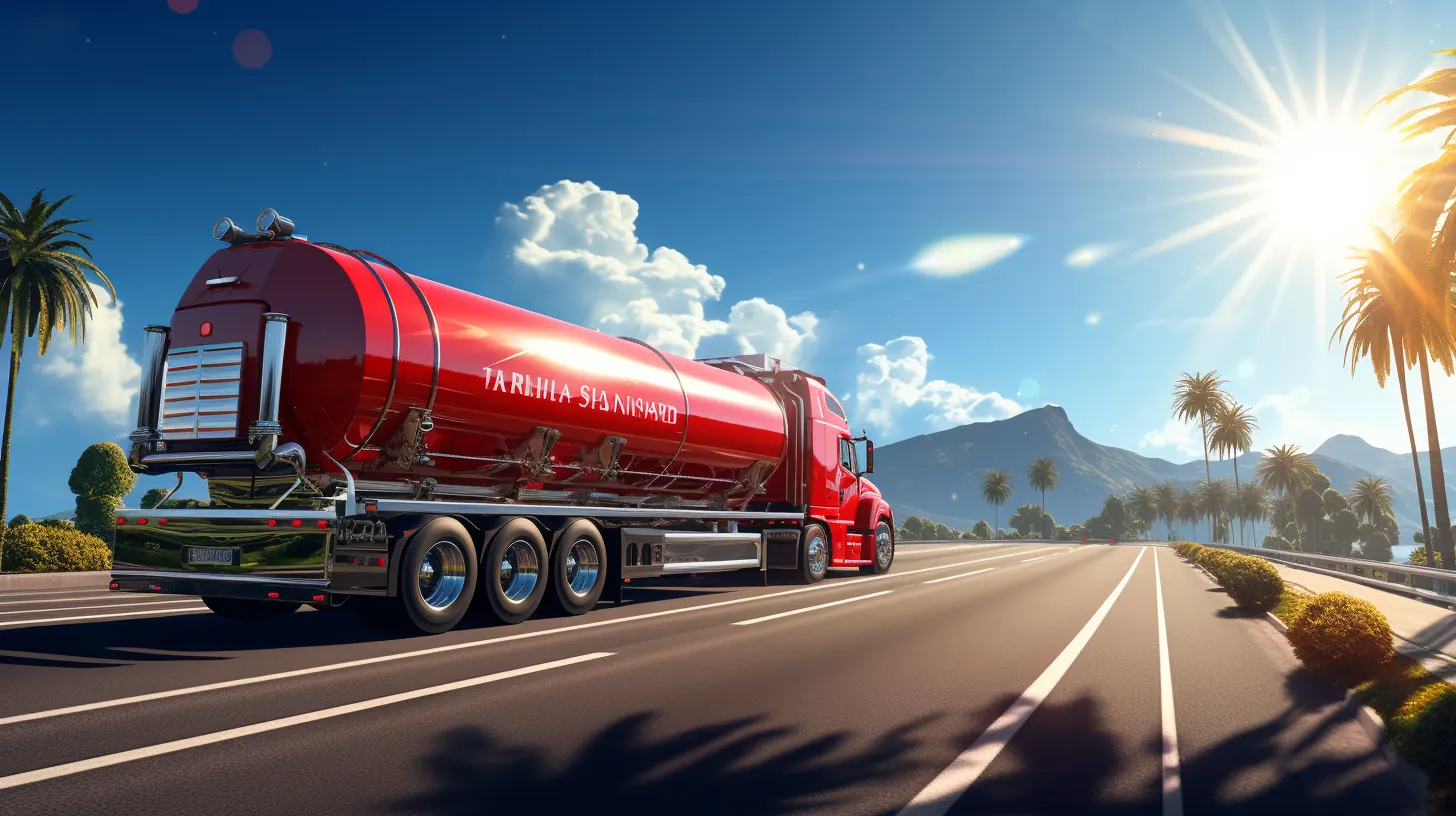
Tanker Trailers: Advantages and Benefits
Secure Liquid Transportation
The primary advantage of tanker trailers lies in their ability to securely transport liquid cargo. The robust construction of the tanks ensures containment and prevents leakage, even during transportation on uneven terrains. The design eliminates the risk of contamination and maintains the integrity of the liquid cargo, providing peace of mind for both logistics professionals and consumers.
Versatility for Different Liquid Types
Tanker trailers offer versatility, catering to a wide range of liquid cargo. They are available in different configurations to meet the specific requirements of various industries. Food-grade tanker trailers, for instance, are designed with additional sanitary features to transport edible liquids, while chemical tanker trailers are equipped with specialized linings to handle corrosive or hazardous substances. This versatility allows for the safe transportation of liquids across diverse sectors.
Efficient Loading and Unloading
Tanker trailers are designed for efficient loading and unloading of liquids. They often feature top-loading or bottom-loading mechanisms, allowing for quick and safe transfer of the liquid cargo. Some tanker trailers are equipped with pumps, hoses, and metering systems to facilitate precise and controlled unloading, ensuring accurate delivery and minimizing product loss.
Cost-Effective and Environmentally Friendly
Tanker trailers contribute to cost-effectiveness in liquid logistics. By transporting large volumes of liquid cargo in a single trip, they reduce the number of journeys required compared to smaller containers. This results in cost savings on fuel, labor, and maintenance. Moreover, by optimizing transportation efficiency, tanker trailers help reduce carbon emissions and the overall ecological footprint associated with liquid logistics.
Curtain-Side Trailers
Curtain-side trailers, also known as tautliners, have a retractable curtain on each side instead of solid walls. These curtains can be easily opened or closed, providing convenient access to the cargo for loading and unloading. Curtain-side trailers offer the security of a traditional van trailer while allowing efficient loading from the sides using forklifts or cranes. They are commonly used for transporting goods that require easy access, such as palletized goods or packaged materials.
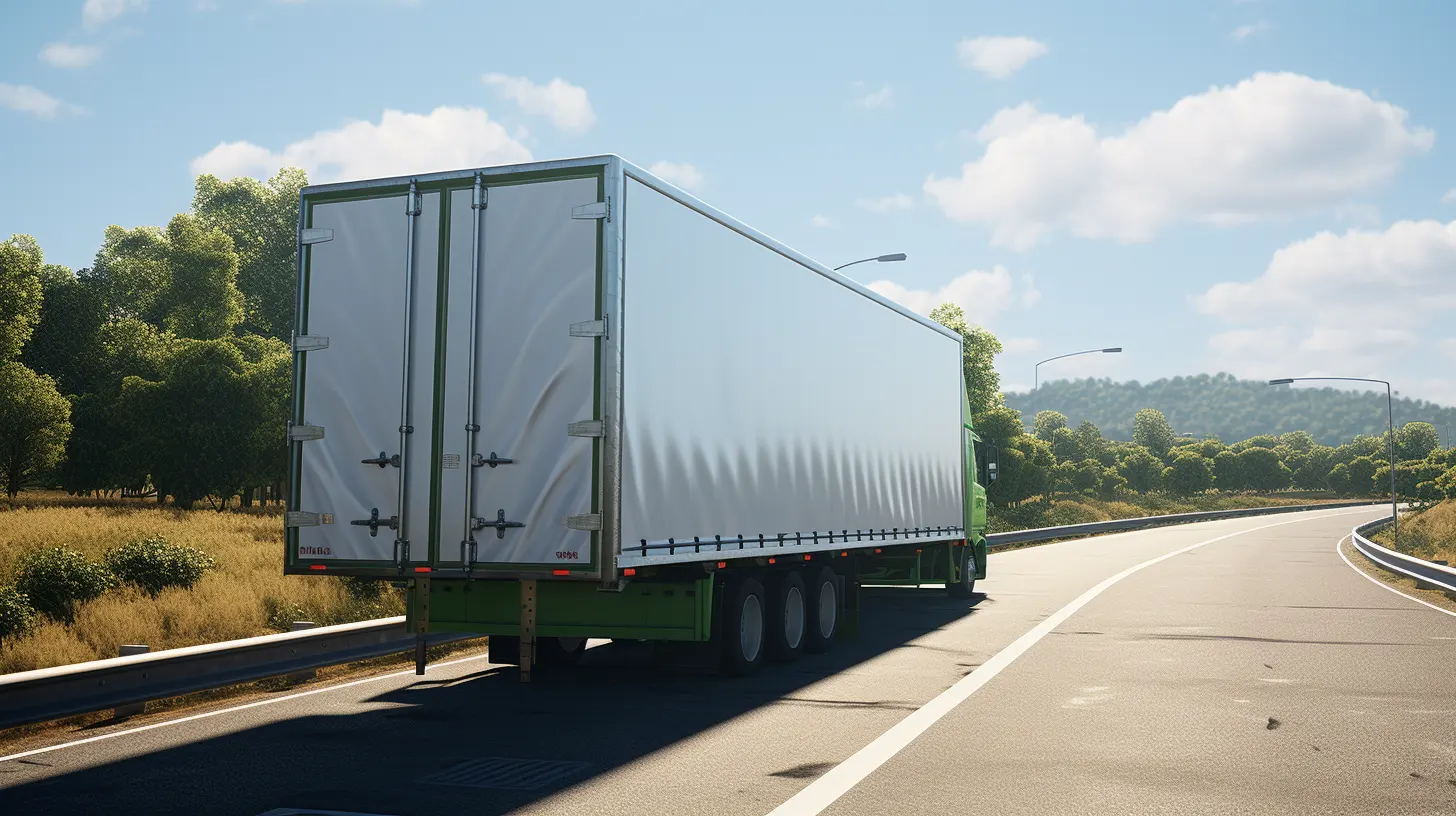
Curtain-Side Trailers: Advantages and Benefits
Versatility and Accessibility
One of the primary advantages of curtain-side trailers is their versatility. Unlike traditional enclosed trailers, curtain-side trailers feature retractable curtains on both sides, allowing for easy and convenient access to the cargo. With the ability to quickly open and close the curtains, loading and unloading goods becomes significantly more efficient. This accessibility is particularly advantageous when transporting goods that require frequent or immediate access, such as perishable items or time-sensitive deliveries.
Enhanced Security and Protection
While curtain-side trailers provide accessibility, they also offer a level of security and protection comparable to that of enclosed trailers. The curtains are typically made from robust materials, such as heavy-duty PVC or reinforced fabric, which are resistant to tearing and provide a barrier against external elements. This added protection shields the cargo from adverse weather conditions, dust, debris, and potential theft. Furthermore, curtain-side trailers often come equipped with security features such as integrated locking mechanisms, providing an additional layer of safety for valuable goods.
Flexibility in Loading and Unloading
Curtain-side trailers excel in their ability to accommodate different loading and unloading scenarios. The retractable curtains enable loading from various angles, including the sides and the rear, making it easier to handle cargo of different shapes and sizes. Forklifts and other loading equipment can easily access the cargo from either side, streamlining the entire process. Moreover, the absence of fixed walls in curtain-side trailers allows for loading and unloading from overhead, facilitating the transportation of goods that are typically challenging to handle in traditional trailers.
Optimized Space Utilization
Curtain-side trailers maximize the use of available space efficiently. Unlike traditional trailers that have fixed walls, curtain-side trailers offer flexibility in utilizing the entire length and width of the cargo area. This feature is especially beneficial for irregularly shaped or oversized goods that do not fit neatly within the confines of a standard enclosed trailer. By utilizing the full extent of the trailer’s space, companies can optimize their logistics operations, reduce the number of trips required, and ultimately improve cost-effectiveness.
Livestock Trailers
Livestock trailers are specifically designed for transporting animals. They are equipped with partitions and gates to ensure the safety and comfort of the animals during transportation. Livestock trailers provide proper ventilation, flooring, and other necessary features to meet the unique needs of different animals, including cattle, horses, poultry, and pigs. These trailers play a crucial role in the agricultural and farming industries.
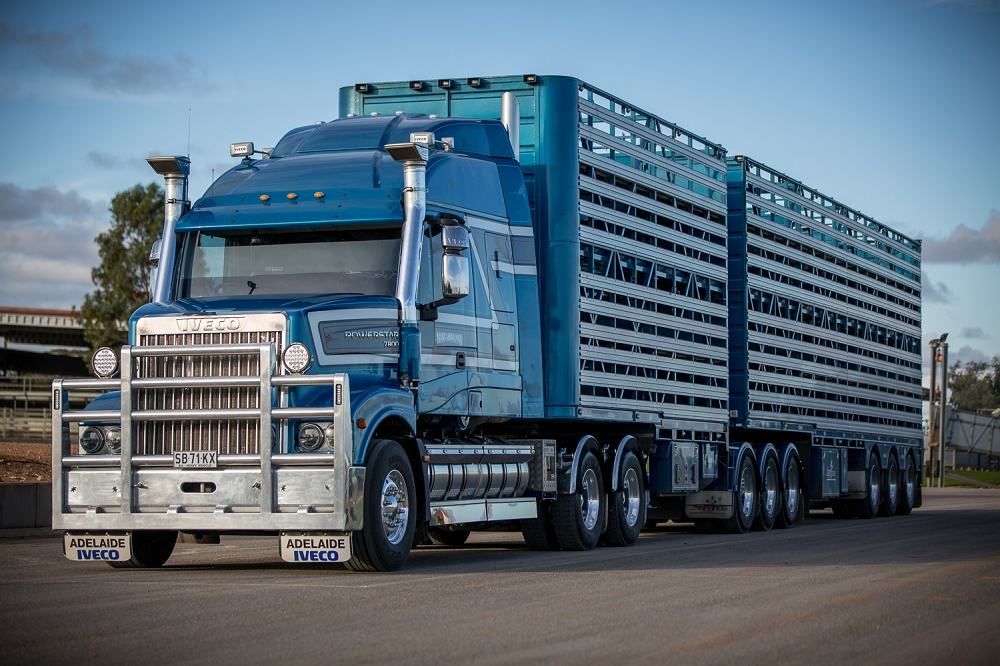
Livestock Trailers: Advantages and Benefits
Animal Safety and Welfare
Livestock trailers prioritize the well-being of animals during transportation, providing a secure and comfortable environment that minimizes stress, injuries, and aggression.
Efficient and Timely Transportation
Livestock trailers enable quick and smooth loading and unloading, reducing handling time and ensuring timely delivery of animals to their destinations.
Compliance with Regulations
Livestock trailers are designed to meet regulatory standards, demonstrating a commitment to animal welfare and responsible transportation practices, while avoiding legal and ethical issues.
Protection from External Factors
Livestock trailers provide protection against adverse weather conditions, road debris, and accidents, ensuring the safety of animals during transit and reducing the risk of injuries.
The logistics industry heavily relies on a diverse range of trailers to meet the transportation needs of different types of cargo. From dry van trailers for general freight to specialized trailers like reefer trailers for temperature-sensitive goods or tanker trailers for bulk liquids, each trailer type serves a specific purpose and caters to specific industry requirements. Understanding the various types of trailers in logistics is crucial for logistics professionals, as it enables them to make informed decisions and optimize their supply chain operations. By choosing the right trailer for the job, logistics companies can ensure efficient and secure transportation of goods, contributing to the overall success of the supply chain.
Discover exciting stories and get insights from logistics experts.
Join the ultimate Fr8App Insights mailing feed.
